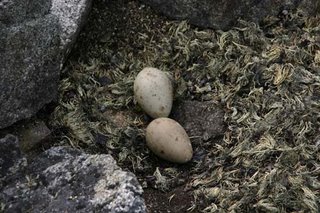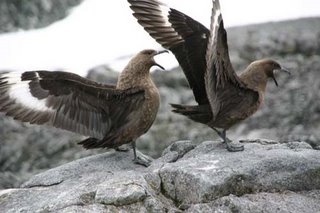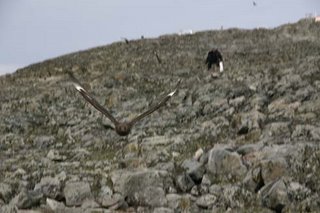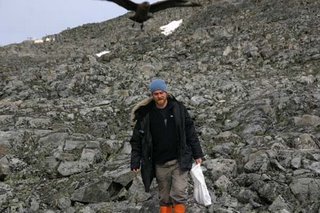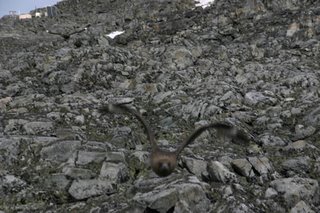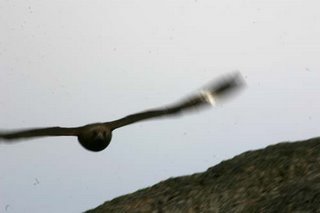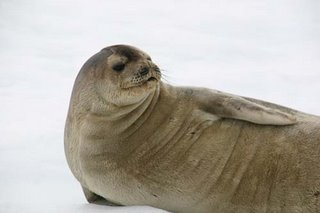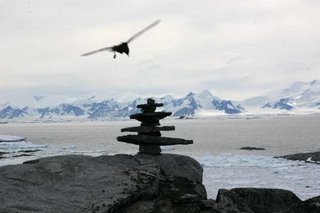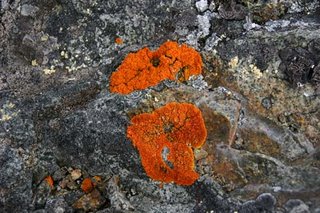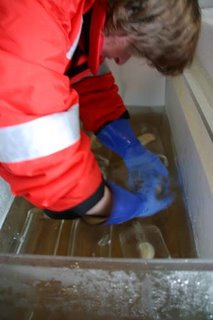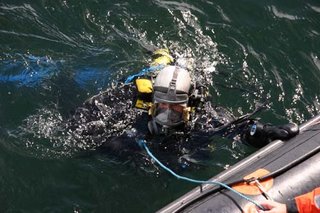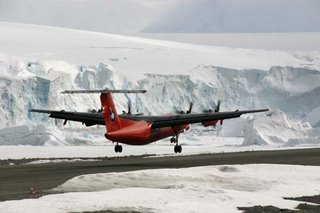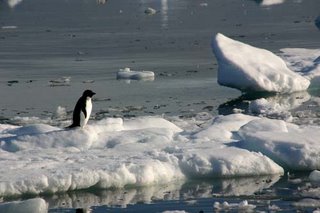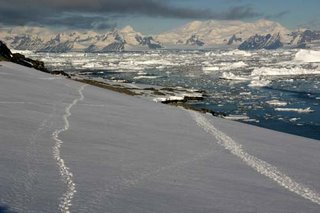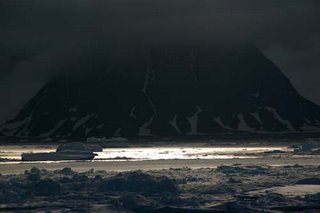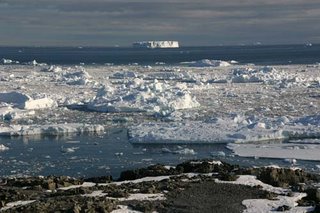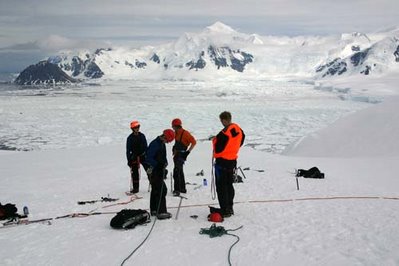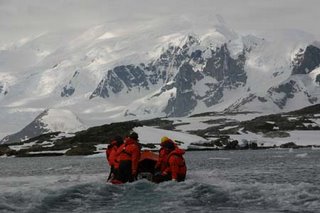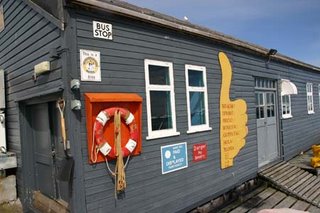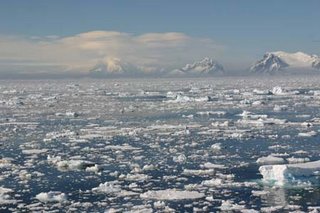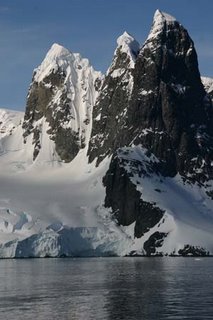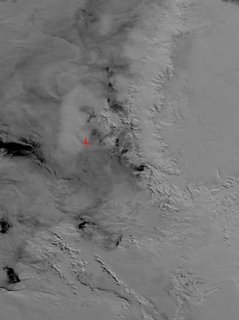
21st December

The moment the weather cleared, 22nd December
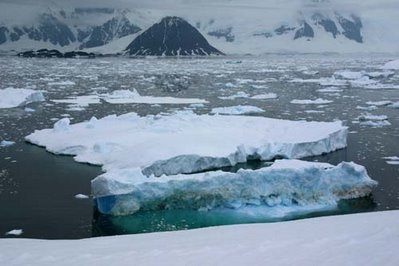
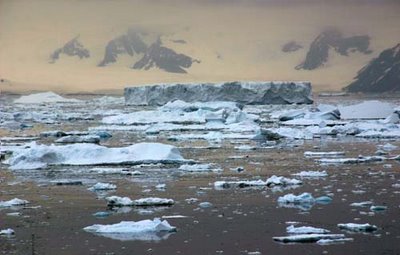
As the sun circles the sky and there is little differentiation between night and day, time becomes cyclical. Today is the longest day, which means that the sun, at this time of the year, will be at its highest point in the sky at midnight. I am interested in this circular time; it changes body rhythms and have decided to make two films of the triangular black Mountain across the bay, and the big tabular berg over the 24 hours of the Solstice.
In practice I chose a site near the south point which has 180 degree views. The berg is on the move North, and I have no idea how far it will move in 24 hours. By the following morning it will in fact have moved about two miles away.
I will have to film each view for two and a half minutes every hour. I have two tripods set up and two 60 minute cassettes for the camera which I change each time I move to the other tripod. I keep a spare battery in my pocket to keep it warm and extend its life. This wont be a time lapse as it has to be done by hand in the open and the berg is not static.
I trudge up the hill, 20 or so times, sometimes staying up for two or three hours. At the most I get 35 minutes to grab a cup of tea and a rest before I set out again; a wearing process. There is no wind and the cloud is dense, sometimes black, and at times almost down to the waterline. Mountains fade into the gloom, and the berg as it moves North, is often hardly distinguishable.
It is however utterly peaceful. Wilson's Petrels quarter the sky, and the tern colony below keeps up a constant racket. There are a pair of bonxies who keep me company throughout the night. The water has warmed considerably so the bergs are melting and no longer grate on the sea bed. There is only the sound of constantly moving ice mush, the screech of terns and the sharp crack of splitting bergs, interspersed with the distant raw of avalanches on the peninsular. As midnight approaches the gloom intensifies, accentuating the extraordinary blues and turquoise in the old ice of the bergs. I pass two Adelie penguins fast asleep on the snow.
For 23 hours the landscape is grey and white. A soft, whispering silence pervades everything. Around 8.00 am the sky begins to clear and, in the last 5 minutes of each cassette, in the last of the 24 hours, the sun touches and illuminates both mountain and iceberg.
